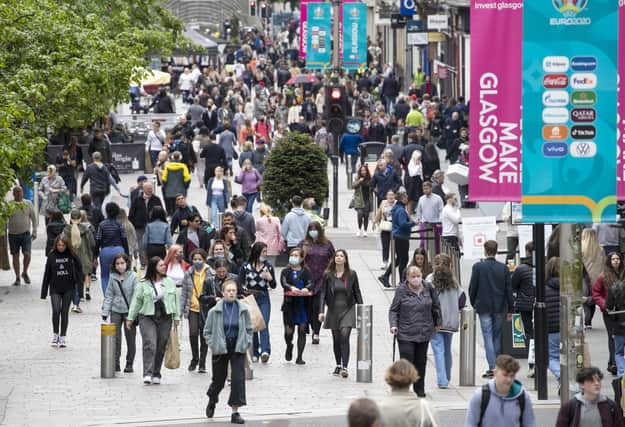Vaccine passports come with losses but the alternatives are far grimmer


It warns "a significant number of businesses and organisations across Scotland" will be hit, economically, by a requirement for certification.
It also points out many of those businesses - pubs, cinemas, theatres - are the ones already harmed by long lockdowns and limits on their activities.
Advertisement
Hide AdAdvertisement
Hide AdBut it also points to a vital choice if we are to limit the virus further: to close venues and avoid other people, or to ask people to meet in a lower-risk way by using the passports.
In short, we face a choice between the hugely damaging restrictions of last winter, that came pre-vaccine, or a new kind of restriction which is also economically damaging – but less so – and where risk is managed in a more nuanced way.
This is not an empty threat. As winter closes in across northern Europe, we're seeing the nightmare of lockdown playing out again. Yesterday, Austria announced both a 20-day lockdown and - in a first for a Western country - mandatory vaccination for its population, to protect its overwhelmed hospitals. Germany has warned it may have to follow suit and introduce hard restrictions on daily life as cases reach record levels.
Given the choice, voluntary vaccination - and proof of that vaccination to allow access to social venues - is the preferable choice.
Vaccine passports, especially their implementation in Scotland, have been far from perfect. We look forward to the time when they are no longer necessary, and we should continue to scrutinise their effectiveness regularly and carefully.
But many of the wider arguments about the passports - that they are incapable of offering reassurance that someone is Covid negative, and irrelevant in preventing onward transmission, and so are next to useless - are unconvincing. Allowing the result of a recent test to be recorded, as is mooted, might add a little further reassurance.
Moreover, passports don't prevent infection or transmission, of course. But they do ensure people in a higher-risk situation - a stadium, a nightclub - are less likely to be seriously unwell should they catch Covid, thus reducing risk to them and the NHS. They also encourage the unvaccinated to get the jab.
And so, while the civil liberties concerns around vaccine passports remain real, the other arguments about their worth remain weak, especially in the face of the grim alternative means of controlling this virus's spread.